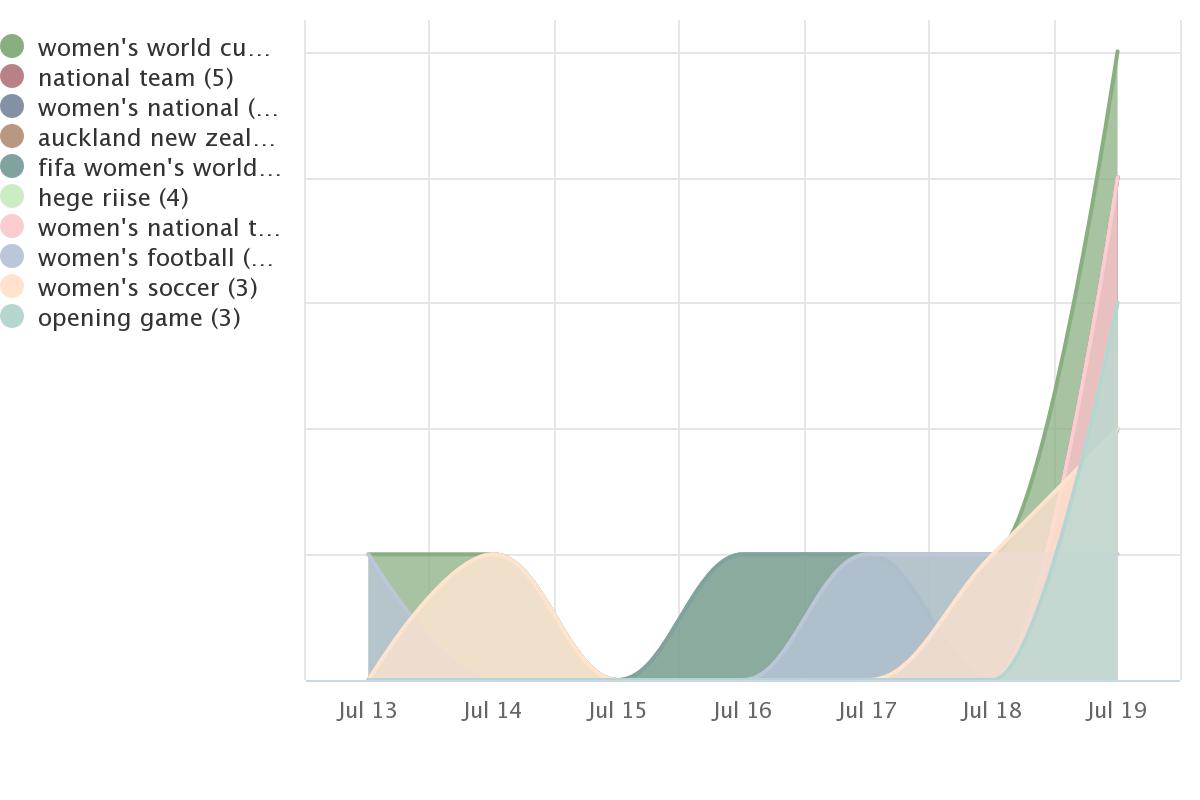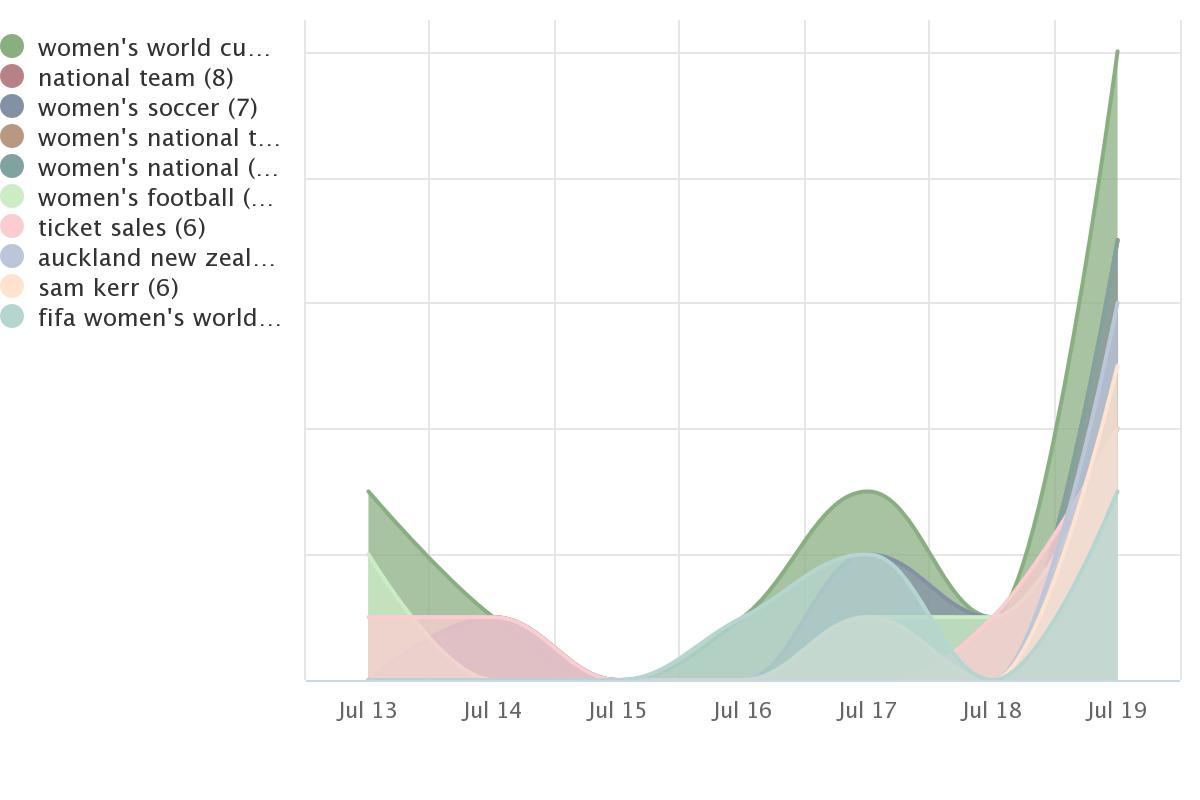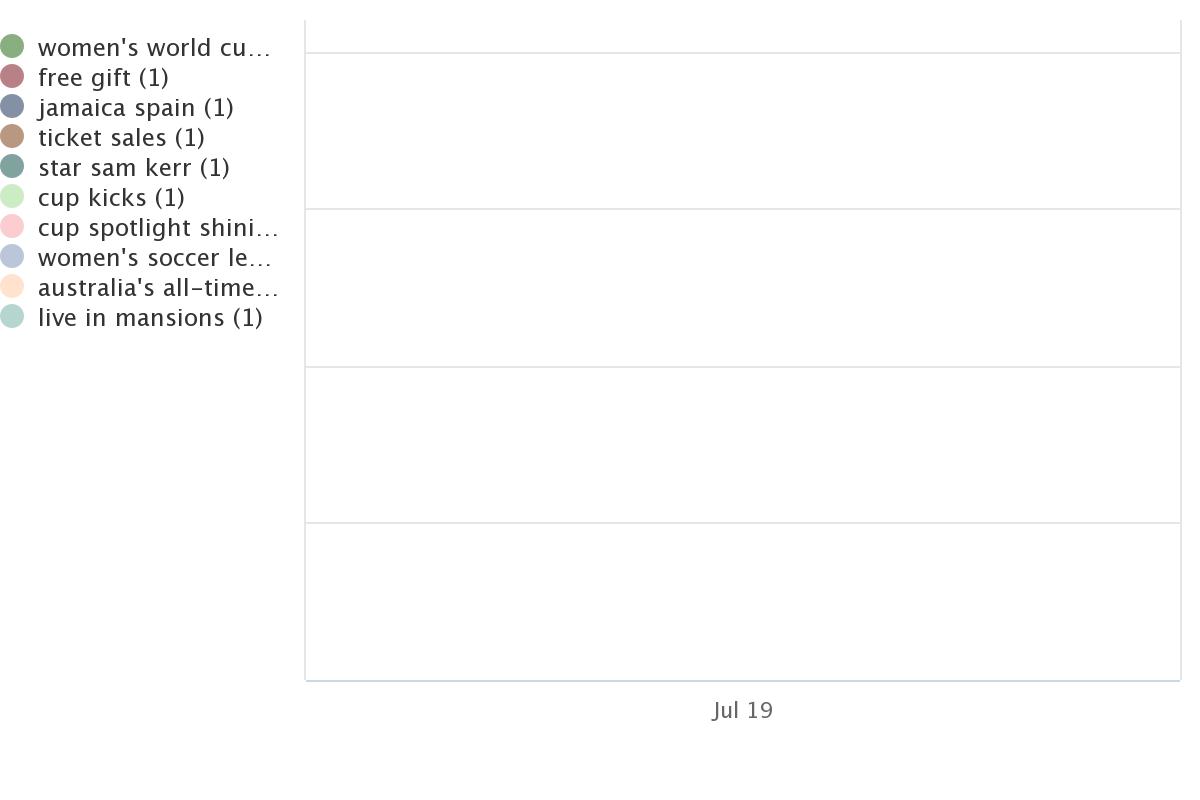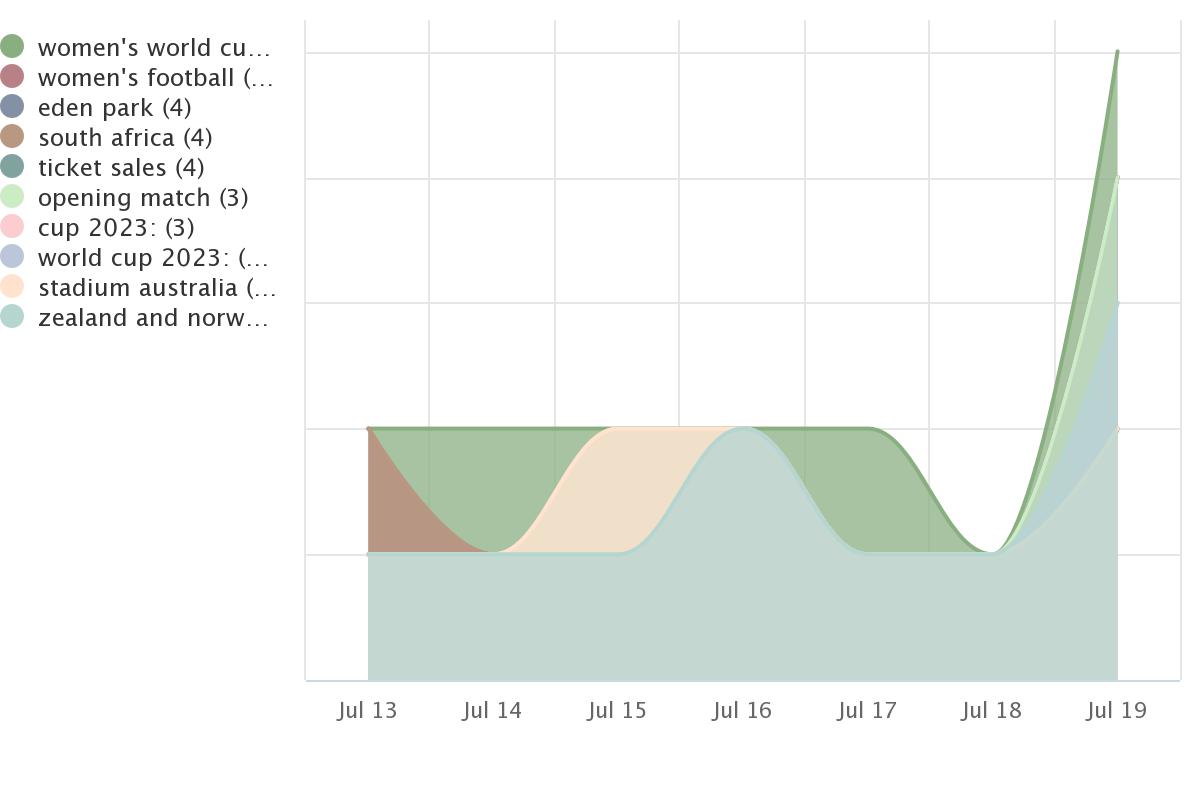
The media narrative surrounding the Women's World Cup in New Zealand suggests that the country is slow to embrace the tournament, despite FIFA selling 1.4 million tickets for the event across Australia and New Zealand. Soccer is not widely supported in New Zealand, where rugby dominates as the national sport.
Our Kudzu Narrative Intelligence briefs auto-update every few hours with fresh analysis:
Despite the Women's World Cup being co-hosted by Australia and New Zealand in 2023, there is a perception that New Zealand is slow to embrace the tournament. The lack of widespread support for soccer in the country, where rugby is the dominant sport, may be contributing to this narrative.
Key Takeaways:
FIFA has reported selling 1.4 million tickets for the Women's World Cup across Australia and New Zealand. However, there are concerns that ticket sales in New Zealand are not as strong as expected, with only six matches close to being sold out.
Key Takeaways:
Rugby is the dominant sport in New Zealand, which may explain the slower embrace of the Women's World Cup. The strong cultural attachment to rugby may overshadow the popularity of soccer in the country.
Key Takeaways:
The top surfaced keywords in U.S. media provide insights into the most discussed topics related to women's soccer and the Women's World Cup. The keywords that appear more frequently indicate their relevance and prominence in the narrative. Here are some observations:
When comparing the keywords found only in U.S. media, some interesting patterns emerge. The keywords "free tickets," "final in los," "all-time leading," "national women's soccer," "women's world cups," and "ballon d'or" appear to be specific to the U.S. media narrative. These keywords reflect the emphasis on ticket availability, the significance of the Women's World Cup finals, the achievements of leading players, and the recognition of outstanding performances.
In the left-leaning U.S. media sources, keywords like "opening game," "world cup opener," and "previous appearances" indicate a focus on the early stages of the tournament and the history of teams' participation. Additionally, the presence of keywords like "aiming to win" and "women's super soccer league" suggests a narrative that highlights the competitive spirit and the development of women's soccer.
Keywords found only in right-leaning U.S. media sources reveal a different narrative focus. Keywords like "free gift," "cup kicks," and "live in mansions" indicate a different perspective, potentially emphasizing attention-grabbing elements or controversial aspects. The presence of keywords like "norway coach" and "ballon d'or award" suggests a focus on individual achievements and the international soccer landscape.
European media sources provide additional insights into the Women's World Cup narrative. The presence of keywords like "england's lionesses," "golden boot," and "vivianne miedema" indicates a focus on specific teams and players, showcasing the European perspective on the competition.

Left-Leaning in U.S. Media

All Sources in U.S. Media

Right-Leaning in U.S. Media

Sources in European Media
Our Narrative Intelligence provides valuable insights on bias in U.S. media. In our Kudzu Narrative Intelligence Briefs, we use our Narrative AI and Narrative Technology to analyze media coverage across different political leanings. Below is the coverage distribution based on bias:
left-center sources: 8 sources
least bias: 7 sources
Left bias: 2 sources
Right-center bias: 1 source
Right bias sources: 1 source
Left-center bias sources have double the instances compared to right-center and right bias sources.
Additionally, left-center bias sources have triple the instances compared to left bias sources.
These findings highlight the numerical differences in media coverage across political leanings and provide important insights into bias in U.S. media.
Note: Kudzu Narrative Intelligence briefs update every few hours. Very likely, the Narrative Analysis data visualization depicted in the graphic above will have changed as well.
Image Credit for Article Header: Photo by Connor Coyne on Unsplash